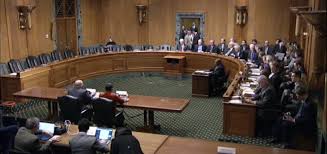On May 8, 2019, the Senate Finance Committee held a hearing to examine the first two years of implementation of the Medicare Access and CHIP Reauthorization Act (“MACRA”), and to assess the extent to which the legislation is improving quality of care and value for taxpayers. In addition, the Committee solicited input from healthcare providers regarding how to improve the system. The healthcare providers were particularly interested in improving the quality metrics, as well as finding ways to mitigate the differential impact on small and rural practices.
MACRA, which was signed into law in 2015, reformed how Medicare pays healthcare providers by establishing incentives to reward physicians for providing the best possible care to seniors. Specifically, the MACRA rewards clinicians for “value over volume,” streamlines several quality programs, gives bonus payments to providers who participate in alternative payment models, and repeals the prior Sustainable Growth Rate (“SGR”) formula.
During the hearing, Chairman Chuck Grassley (R-IA) and Ranking Member Ron Wyden (D-OR) pointed out that doctors in small practices, and in rural and underserved areas, have unique challenges in succeeding under MACRA, and that they need a “meaningful opportunity” to do so. Ranking Member Wyden also indicated an additional goal of minimizing administrative burdens so that doctors are not “checking boxes all day.” The hearing witnesses represented physicians from multiple specialties and varying practice characteristics, and included the American Medical Association, American Academy of Family Physicians, American College of Surgeons and the American Medical Group Association, as well as a Brookings Institution Health Policy Fellow. The witnesses agreed that MACRA was an improvement over the SGR formula. They also listed a number of areas for improvement, including the need for a stable and predictable program to incentivize providers to make the financial investments needed to achieve MACRA goals, and the need for better alignment between MACRA quality measures and improving clinical care for patients. Witnesses also concurred on the need for improvements in the program for small and rural practices, for example, by implementing reduced reporting requirements, hardship exemptions from some of the quality measures, and technical assistance grants.
The Brookings Institution Fellow was critical of the system, noting that the current quality measures would not likely reduce costs or improve quality. The Fellow suggested changing the payment incentives to center around clinicians rather than patients, as many times a patient’s care involves multiple different clinicians and determining a coherent set of incentives for the management of each patient’s care is difficult and impractical. He was also critical of allowing clinicians to choose the quality measures on which they are evaluated, as this creates a lack of common measures that can used to compare the performance of different clinicians. Finally, he pointed out that there is limited evidence available of MACRA effects, as CMS only recently released data on the program’s first year.

